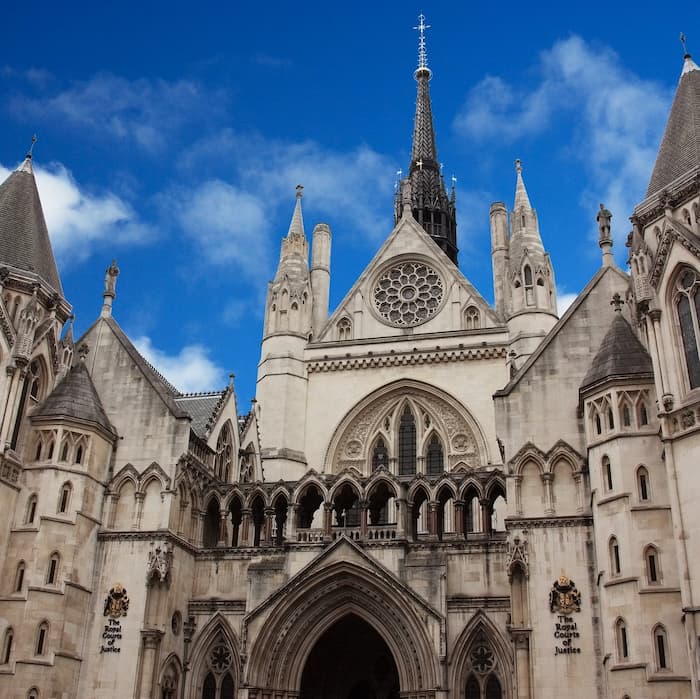Tax
Film, Games Funds Mull Tax Battle After Court Rejects Appeal Bid

The case puts a spotlight on how avoidance, while not a criminal offence as is evasion, is targeted by revenue authorities if they deem that tax is being avoided without an underlying economic activity.
An operator of film and video finance funds, Ingenious Group, has
told WealthBriefing that it is considering
options after the Court of Appeal in London dismissed
its bid to seek a fresh appeal over a tax ruling involving
hundreds of millions of pounds.
At the heart of the case is a long-running dispute over whether
film and video game funds, which carried significant tax
advantages, were designed mainly to avoid tax rather than make a
profit by producing films and other
entertainments.
In mid-July, the Court of Appeal dismissed an attempt by
Ingenious Games LLP and other LLP entities, overseen by UK-based
Ingenious Group, to gain permission to appeal a case HM
Revenue and Customs won at the Upper Tribunal in 2019. The
applicants were Ingenious Games LLP; Inside Track Productions
LLP, and Ingenious Film Partners 2 LLP.
It is understood that HMRC can now collect tax owed from the
partners of the LLPs who haven’t yet settled the case. This news
service understands that hundreds of millions of pounds are
involved, but a specific figure is not being disclosed.
Ingenious Group told WealthBriefing that it is not
trying to avoid paying tax but ensure that it pays the
correct amount.
HMRC reaction
“I’m delighted the court swiftly dismissed the LLPs’ attempt to
yet again help its partners put off paying tax owed to the public
purse. This long-running battle demonstrates our determination to
stop such attempts to avoid tax. We’ll now recover the tax owed
from the individuals who haven’t yet settled,” Mary Aiston,
director of counter-avoidance at HMRC, told this news service in
a statement.
“Tax avoidance schemes are promoted as clever ways to pay less
tax. In reality, they rarely work as promised and the users are
left with big tax bills. Court action like this is one of the
many steps we are taking to disrupt and drive scheme promoters
out of business. We want to help ensure people do not get caught
out by tax avoidance,” Aiston said.
According to a statement from the Court of Appeal (Civil
Division) on 19 July, there were two main decisions in the
case involving the First Tier Tribunal (FTT), Upper Tribunal (UT)
and Court of Appeal on dates between 2016 and 2021.
The statement pointed out that the Upper Tribunal decided “among
other things that, on a true analysis of what the LLPs did, their
operations were conducted on the so-called 30:30 basis, not the
Ingenious basis, and that on that basis the Film LLPs, although
not the Games LLP, were trading with a view to profit. The UT
[Upper Tribunal] agreed with the contractual analysis of the FTT,
although their reasoning was not quite the same. But they held
that none of the LLPs was trading on that basis, nor had a view
to profit.”
Ingenious Group said the LLPs “are now reviewing their options in
light of the recent refusal to grant permission to appeal on the
unheard grounds.”
“Wherever we have been given leave to appeal we have ultimately
won, whether that’s in the Court of Appeal (CoA) or, in a
separate case against HMRC, the Supreme Court, as demonstrated
last year in the CoA where the Ingenious LLPs ( LLPs ) were
held to be trading with a view to profit. Note that even in two
completely different cases (involving unrelated taxpayers) the
decisions of the Upper Tier Tribunal (UT) that we sought to
appeal, and on which HMRC relied on in those other cases, were
reversed by the CoA (in one instance) and the Supreme Court (in
another), rendering the entire judgment of the UT unreliable,” it
said.
“Our recent application for permission to appeal was therefore
driven not by an attempt to avoid tax but to pay the correct
amount of tax. The substantive issues of trading and view to
profit had already been decided in favour of the LLPs so the
ensuing technical points should, in our view, have also been
given the opportunity to be considered by the CoA,” Ingenious
Group added.
The case puts a spotlight on how tax avoidance, while not a
criminal offence as in evasion, is targeted by revenue
authorities if they deem that tax is being avoided without an
underlying economic activity.
Ingenious Group, which has operated since the late 1990s,
operates a variety of estate planning, credit and equity
services, according to its website.